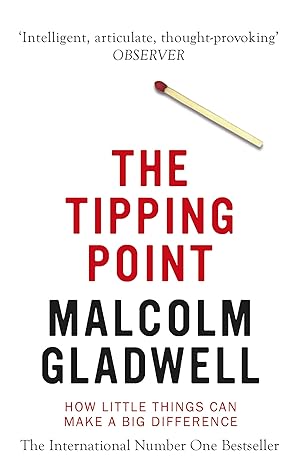More on this book
Community
Kindle Notes & Highlights
Read between
July 27 - August 17, 2023
The essence of the Power of Context is that the same thing is true for certain kinds of environments — that in ways that we don’t necessarily appreciate, our inner states are the result of our outer circumstances.
His point is simply that there are certain times and places and conditions when much of that can be swept away, that there are instances where you can take normal people from good schools and happy families and good neighborhoods and powerfully affect their behavior merely by changing the immediate details of their situation.
You would say, instead, that your friend Howard is generous and your friend Alice is honest. All of us, when it comes to personality, naturally think in terms of absolutes: that a person is a certain way or is not a certain way. But what Zimbardo and Hartshorne and May are suggesting is that this is a mistake, that when we think only in terms of inherent traits and forget the role of situations, we’re deceiving ourselves about the real causes of human behavior.
When we observe a woman who seems hostile and fiercely independent some of the time but passive, dependent and feminine on other occasions, our reducing valve usually makes us choose between the two syndromes. We decide that one pattern is in the service of the other, or that both are in the service of a third motive. She must be a really castrating lady with a façade of passivity — or perhaps she is a warm, passive-dependent woman with a surface defense of aggressiveness. But perhaps nature is bigger than our concepts and it is possible for the lady to be a hostile, fiercely independent,
...more
with, when, how, and much, much more. But each of these aspects of her self may be a quite genuine and real aspect of her total being.
Character is more like a bundle of habits and tendencies and interests, loosely bound together and dependent, at certain times, on circumstance and context.
convictions of your heart and the actual contents of your thoughts are less important, in the end, in guiding your actions than the immediate context of your behavior.
Environmental Tipping Points are things that we can change: we can fix broken windows and clean up graffiti and change the signals that invite crime in the first place.
Judith Harris has convincingly argued that peer influence and community influence are more important than family influence in determining how children turn out.
Studies of juvenile delinquency and high school drop-out rates, for example, demonstrate that a child is better off in a good neighborhood and a troubled family than he or she ...
This highlight has been truncated due to consecutive passage length restrictions.
To be someone’s best friend requires a minimum investment of time. More than that, though, it takes emotional energy. Caring about someone deeply is exhausting. At a certain point, at somewhere between 10 and 15 people, we begin to overload, just as we begin to overload when we have to distinguish between too many tones. It’s a function of the way humans are constructed.
Contagiousness is in larger part a function of the messenger. Stickiness is primarily a property of the message.
In the end, Tipping Points are a reaffirmation of the potential for change and the power of intelligent action. Look at the world around you. It may seem like an immovable, implacable place. It is not. With the slightest push — in just the right place — it can be tipped.


